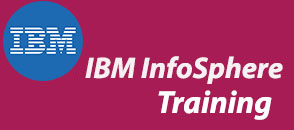


![]() Online Training
Online Training
![]() Corporate Training
Corporate Training
![]() ON Demand
ON Demand
In the Data Modeling with IBM InfoSphere Data Architect training course you will learn how to do data modeling using the IBM InfoSphere Data Architect. This is a fast paced course and its primary objective is to make you productive quickly in creating data models and using the tool. Unlike courses that focus only on mechanics of using the tool, you will also learn the best practices of data modeling together with the productive use of the tool. The course is suitable for modelers new to the InfoSphere Data Architect, those who are migrating from other tools, and the IT professionals who need to quickly master the task of data modeling.
The Data Modeling with IBM InfoSphere Data Architect training course begins with logical data modeling. We deal with various practical cases and show how to represent them with InfoSphere Data Architect models. Physical data models are covered next, including the modeling of databases and creation of DDL. Finally, we devote attention to InfoSphere Data Architect advanced automation capabilities for improving the productivity through transformations and team development.
The Data Modeling with IBM InfoSphere Data Architect training course uses InfoSphere Data Architect Version 7.5.
The course can be customized for those transitioning from other tools, such as CA ERwin or Embarcadero ER/Studio.
Upon completion of this course, attendees will be able to:
The Data Modeling with IBM InfoSphere Data Architect training course is intended for roles involved in data modeling and development.
Attendees must be familiar with basic concepts of relational databases.
Expert Instructors
Practical Implementation
Real- time Case Studies
Certification Guidance
Resume Preparation
Placement Assistance
Copyright 2018 © www.unitedglobalsoft.com . All right reserved | Sitemap | Privacy Policy | Terms Of Services